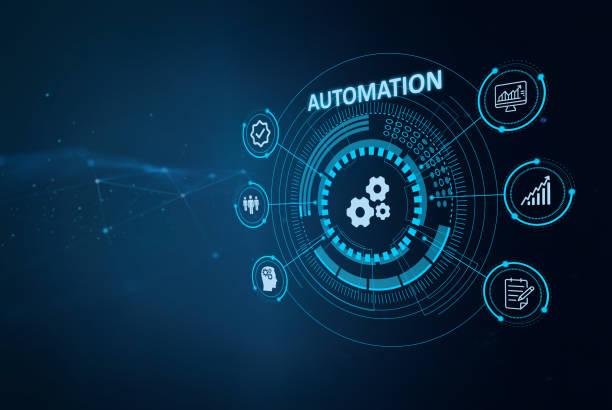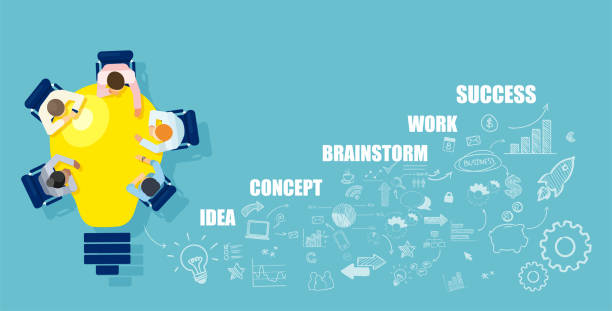The landscape of work is undergoing profound transformation due to rapid technological advancements and the rise of automation. This article explores how these developments are reshaping the future of work, impacting industries, job roles, skills requirements, and the overall workforce.

1. Technological Advancements and Automation
Technological advancements, including artificial intelligence (AI), robotics, machine learning, and automation, are revolutionizing industries and business operations. Automation, in particular, involves the use of machines, robots, and software to perform tasks traditionally carried out by humans. This shift is driven by advancements in algorithms, sensors, and computing power, enabling machines to handle complex tasks with speed, accuracy, and efficiency.
2. Impact on Job Roles and Industries
The integration of automation and AI is transforming job roles across various industries:
- Manufacturing: Robotic arms and automated assembly lines improve production efficiency and consistency.
- Transportation: Autonomous vehicles and drones revolutionize logistics and delivery services.
- Healthcare: AI-powered diagnostics, robotic surgeries, and telemedicine enhance patient care and operational efficiency.
- Finance: Automated trading algorithms, AI-driven financial analysis, and customer service chatbots streamline banking and investment processes.
While automation eliminates routine tasks, it also creates demand for new roles focusing on technology management, data analysis, cybersecurity, and customer experience enhancement.
3. Skills and Education Requirements
The future workforce must adapt to evolving technological demands:
- Digital Literacy: Proficiency in digital tools, data analysis, and software programming becomes essential.
- Adaptability: Flexibility to learn new skills and adapt to technological changes rapidly.
- Critical Thinking: Problem-solving, creativity, and decision-making skills remain crucial in navigating complex business challenges.
- Soft Skills: Effective communication, teamwork, and emotional intelligence are valued in collaborative and customer-facing roles.
Education systems and professional development programs need to emphasize STEM (science, technology, engineering, mathematics) education, lifelong learning, and reskilling initiatives to equip individuals with the skills needed for future job markets.

4. Workplace Transformation and Flexibility
Advancements in technology enable remote work, flexible schedules, and digital collaboration tools:
- Remote Work: Virtual offices, video conferencing, and cloud computing facilitate global collaboration and work-life balance.
- Flexibility: Agile work arrangements cater to diverse employee preferences and optimize productivity.
- Digital Platforms: Freelancing, gig economy platforms, and online marketplaces connect talent with global opportunities.
Organizations must adopt agile management practices, cybersecurity protocols, and inclusive policies to support a remote workforce and foster a culture of innovation and collaboration.
5. Economic and Societal Implications
The adoption of automation and AI impacts economies and societies:
- Economic Growth: Enhanced productivity, innovation, and cost efficiencies drive economic growth and competitiveness.
- Job Displacement: Automation may lead to job displacement in certain sectors, requiring proactive measures for workforce transition and upskilling.
- Income Inequality: Disparities in access to education, technology, and employment opportunities necessitate policies promoting inclusive growth and social equity.
- Ethical Considerations: Ethical AI development, data privacy protection, and workforce rights advocacy ensure responsible technology deployment and equitable outcomes.
6. Policy and Regulatory Frameworks
Governments, businesses, and international organizations collaborate to shape policies addressing technological disruption:
- Labor Market Policies: Education reforms, workforce training initiatives, and unemployment support programs promote workforce resilience and social mobility.
- Data Protection: Regulatory frameworks safeguard consumer data privacy and ethical AI deployment.
- International Cooperation: Global standards and agreements facilitate technology transfer, innovation, and sustainable development goals.
Collaborative efforts ensure that technological advancements benefit society while mitigating risks and promoting ethical practices in the digital age.
7. Innovation and Entrepreneurship
Technological advancements spur innovation and entrepreneurship:
- Startup Ecosystems: Tech startups leverage AI, blockchain, and IoT to disrupt industries and create new business models.
- Corporate Innovation: Companies invest in R&D, open innovation, and startup collaborations to drive digital transformation and market competitiveness.
- Sustainable Solutions: Green technologies, circular economy initiatives, and sustainable innovations address environmental challenges and consumer demand for ethical products and services.
8. Reshaping Industries and Global Markets
Industries evolve in response to technological disruption and consumer preferences:
- Digital Transformation: Retail, entertainment, and hospitality sectors embrace e-commerce, digital marketing, and personalized customer experiences.
- HealthTech: Telehealth, wearable devices, and AI-driven diagnostics revolutionize healthcare delivery and patient outcomes.
- Smart Cities: IoT, renewable energy solutions, and urban planning innovations optimize resource management and enhance quality of life in urban environments.

Global markets witness transformational shifts driven by digital connectivity, sustainability agendas, and inclusive economic development strategies.
9. Challenges and Opportunities
Navigating the future of work entails addressing challenges and seizing opportunities:
- Skill Gaps: Bridging skill mismatches through lifelong learning and targeted reskilling initiatives.
- Job Security: Promoting job stability and fair labor practices amidst automation and gig economy growth.
- Innovation Leadership: Fostering a culture of innovation, diversity, and inclusion to drive organizational resilience and competitive advantage.
- Global Collaboration: Strengthening international cooperation on technology governance, trade policies, and sustainable development goals for shared prosperity.
10. Conclusion
In conclusion, the future of work is characterized by technological advances, automation, and evolving workforce dynamics. Embracing digital transformation, fostering innovation, and prioritizing skills development are essential for businesses, governments, and individuals to thrive in a rapidly changing global economy. By embracing agility, inclusivity, and ethical leadership, stakeholders can navigate challenges, capitalize on opportunities, and shape a future of work that is equitable, sustainable, and resilient.

